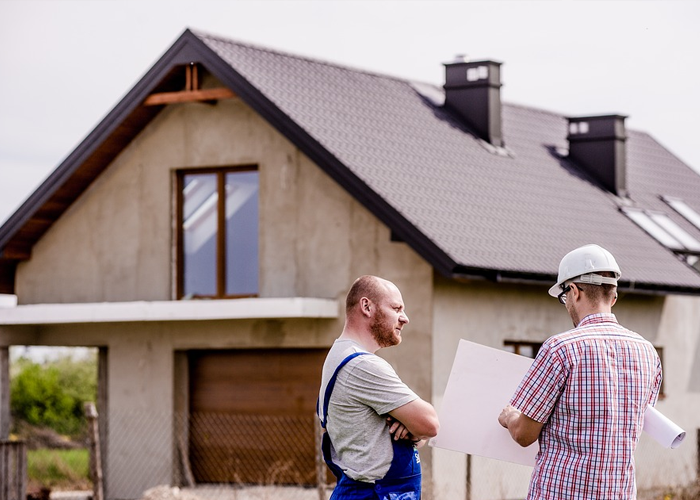How Safety & Satisfaction in Construction Needs to Adapt After Covid-19

According to the Office for National Statistics, construction output fell by a record 40% in April of this year as the coronavirus pandemic restricted work to maintain the safety of those on building sites. While the latest figures from May show a record 8.2% jump in output, this means that construction industry output is still 30% lower than it was before measures to contain the outbreak were implemented. In addition, the Construction Leadership Council predicts that 10% of those working in construction could be out of work by September as firms look to cut costs and keep themselves afloat.
As an industry that has been grappling with a mental health crisis for years, and against the backdrop of the global pandemic, the difficult times the construction industry faces will not only need to focus on economic recovery but the health and wellbeing of its members to avoid deepening the pre-existing problems that the industry was already struggling to manage.
How coronavirus deaths have affected construction workers
ONS data shows that men in skilled construction saw the highest number of deaths from Covid-19 in May and the third highest rate of deaths per 100,000 people. Though social distancing on construction sites has reduced the transmission of the virus, it has still taken a considerable toll on the industry as a whole. Acknowledging the extent of the damage the virus has caused will be essential to recovery but will also likely be detrimental to the general mental health of all those who have lost colleagues and friends already.
The ONS figures also suggest that construction workers experiencing higher levels of deprivation are disproportionately affected by the virus. Construction workers in the lowest quintile of deprivation have died in higher numbers. With the news that employment levels across the sector are about to fall dramatically, this could mean that even more of those already in vulnerable positions are made more vulnerable. Even as employment figures fall, it will be essential to ensure all those in the construction industry are supported mentally as well as physically.
The CIPD Good Work Index of job satisfaction
Before the pandemic, construction workers ranked 12th out of 24 industries for job satisfaction. The industry ranked poorly for employment contracts – for example, levels of employment and full-time versus part-time work. With a huge number of layoffs expected in the next few months, it wouldn’t be surprising if job satisfaction scores for the entire industry fell even further. While this isn’t the only indication of job satisfaction, a declining positive view of work will exacerbate the mental health issues many construction workers experience.
The pre-existing mental health crisis
While the entire world is grappling with the massive public health crisis of coronavirus, construction was already dealing with the considerable public health issue of mental health. While coronavirus presents a more imminent threat, failure to deal with growing mental ill health has contributed to men in construction roles being 35% more likely to commit suicide than the national average. A survey last year also showed that 90% of workers had experienced moderate to extreme feelings of stress. With this level of insecurity being experienced before the added stressors of the pandemic and lockdown measures, the construction industry will have an even bigger challenge supporting its staff through the recovery period of this crisis.
Free resources for construction workers
Reportedly 56% of businesses have mental health policies in place. While this must increase in order to properly support every worker in the industry, it’s important to highlight resources available outside of work to support those who face losing their jobs in the coming months. The charity Mates in Mind works with businesses to establish mental health support practices but also has a number of resources available on their site which could be helpful for those experiencing stress, anxiety or depressions.
There’s also the Lighthouse Construction Charity, who offer a mental health helpline and a free app to work through anxieties and challenges which is available to all. This helpline experienced a 25% rise in calls in April at the beginning of the lockdown so it is sure to be an essential resource in the months to come.
The safety of workers in construction is paramount to the consistent operation of the industry. Managers and industry leaders will need to put in place support for both the mental and physical health of all staff during the coronavirus recovery period to help keep transmissions of the virus down, as well as starting to deal with the mental health issues that were already a threat to workers.
This article was written by Damon Culbert from SMAS Worksafe, SSIP accreditation professionals for the construction industry.


